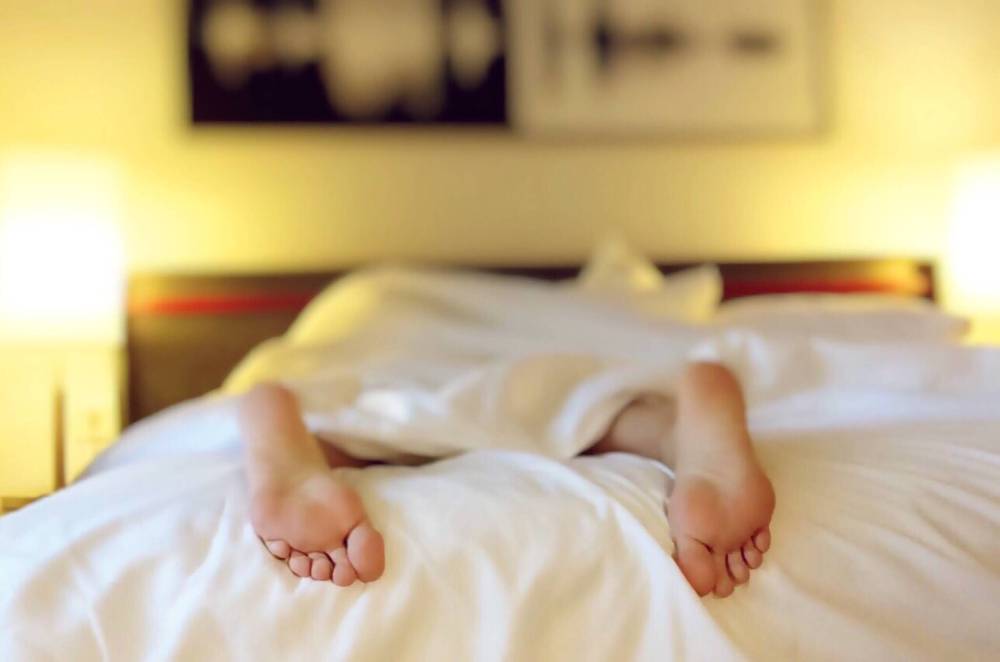Sleep talk
Study confirms women need more shut-eye than men
Advertisement
Read this article for free:
or
Already have an account? Log in here »
To continue reading, please subscribe:
Monthly Digital Subscription
$1 per week for 24 weeks*
- Enjoy unlimited reading on winnipegfreepress.com
- Read the E-Edition, our digital replica newspaper
- Access News Break, our award-winning app
- Play interactive puzzles
*Billed as $4.00 plus GST every four weeks. After 24 weeks, price increases to the regular rate of $19.00 plus GST every four weeks. Offer available to new and qualified returning subscribers only. Cancel any time.
Monthly Digital Subscription
$4.75/week*
- Enjoy unlimited reading on winnipegfreepress.com
- Read the E-Edition, our digital replica newspaper
- Access News Break, our award-winning app
- Play interactive puzzles
*Billed as $19 plus GST every four weeks. Cancel any time.
To continue reading, please subscribe:
Add Free Press access to your Brandon Sun subscription for only an additional
$1 for the first 4 weeks*
*Your next subscription payment will increase by $1.00 and you will be charged $16.99 plus GST for four weeks. After four weeks, your payment will increase to $23.99 plus GST every four weeks.
Read unlimited articles for free today:
or
Already have an account? Log in here »
Hey there, time traveller!
This article was published 15/01/2024 (634 days ago), so information in it may no longer be current.
Ladies, do you often find yourself struggling to sleep or needing to rest more than your partner? Well, you are not alone. It turns out, women need more sleep than men on average, and are also more susceptible to insomnia.
“In general, women need slightly more sleep than men by about 20 minutes more per night,” Dr. Michael Mak, sleep medicine specialist and staff psychiatrist at Toronto’s Centre for Addiction and Mental Health, says by email.
The reason for differences in sleep patterns between men and women stem from various biological, hormonal and societal factors, he says.

“Women’s hormonal fluctuations, such as those related to menstrual cycles, pregnancy and menopause, can impact their sleep quality and duration.”
Dr. Tetyana Kendzerska, the sleep medicine specialist at the Ottawa Hospital and associate professor at the University of Ottawa, explains sex hormones and genetic mechanisms, in conjunction with cultural and societal demands, lead to differences in sleep between men and women.
“While some studies suggest that women are getting more self-reported total sleep time, women, in general, experience more sleep fragmentation and lower quality sleep,” says Kendzerska, adding prior biomedical and social science research has also found that women generally slept longer than men even when considering adults at the same life course stage.
Differences between male and female sleeping patterns
An October 2023 study by academic journal Sleep Health found women had significantly longer average sleep durations than men.
Women are also more prone to experiencing sleep issues compared to men.
A 2007 study by the National Sleep Foundation, an American organization dedicated to providing information on health-related sleep issues, found about 15 per cent of women experience sleep issues of some kind, compared to eight per cent of men.
Furthermore, 63 per cent of women experience insomnia at least a few times a week (with men coming in at 54 per cent).
“Sex- and gender-based factors like hormonal changes, pregnancy, caregiving responsibilities and societal roles contribute to disparities in sleep. Women may experience more insomnia due to hormonal fluctuations, while men are more prone to sleep apnea,” says Mak.
“Short sleep duration (six hours or less) and restless, disturbed nights have been shown to be associated with increased risk of cardiovascular disease mortality in women, but not in men,”– Dr. Tetyana Kendzerska
Some researchers believe many women have increased sleep quantity as an attempt to compensate for reduced sleep quality; however, multiple factors can affect this and sleep can vary considerably from person to person, says Kendzerska.
“Current evidence suggests that self-reported low-quality sleep may be more common among women of all ages than men. Women were more likely to experience insomnia than men. This trend remained consistent and progressive across age groups,” she says.
How does lack of sleep impact men and women differently?
While sleep is absolutely essential for everyone, it can have varying effects on you depending on your sex. Lack of sleep can impact women more adversely.
“Short sleep duration (six hours or less) and restless, disturbed nights have been shown to be associated with increased risk of cardiovascular disease mortality in women, but not in men,” Kendzerska quotes from a 2014 Plos One journal study.
Also, long sleep duration was associated with a significant increase in incidents of obesity, but only among women.
Factors that impact women sleep
Common sleep disruptors for women include hormonal changes during menstruation, pregnancy-related discomfort, menopause symptoms, stress, child-care responsibilities and societal pressures.
Tips to improve sleep quality
To enhance sleep quality, Mak suggests establishing a regular sleep schedule (waking up daily at the same time and going to bed only when sleepy), creating a relaxing bedtime routine, ensuring a comfortable, quiet and dark sleep environment, limiting screen time before bed, managing stress and avoiding alcohol and nicotine.
tahira.khan@freepress.mb.ca
History
Updated on Friday, January 19, 2024 5:19 PM CST: Clarifies Dr. Tetyana Kendzerska's title

